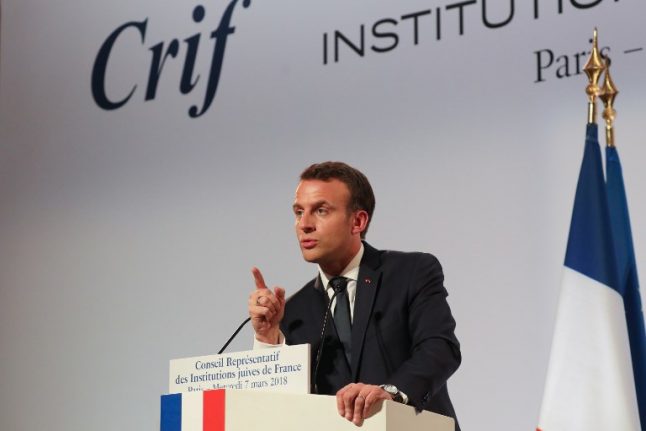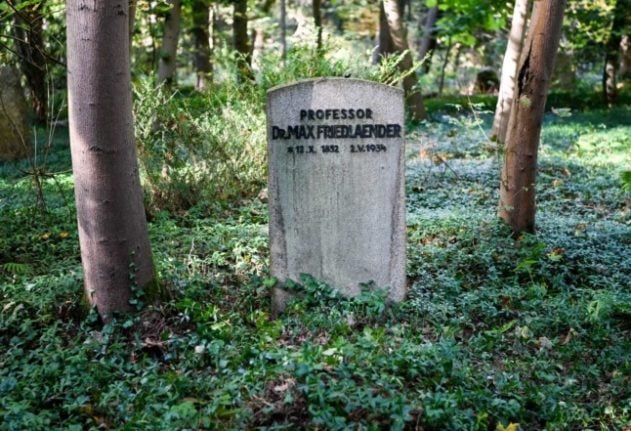
ANTI-SEMITISM
Anti-Semitism: Macron vows to tackle the ‘shame of France’
French President Emmanuel Macron has spoken out against the "scourge" of anti-Semitism, calling it the "shame" of France and vowing to fight against it wherever surfaces, including online.
Published: 8 March 2018 15:34 CET

Photo: AFP
On Wednesday Macron addressed the country's most leading Jewish group CRIF (Representative Council of French Jewish Institutions).
During the speech, the president denounced anti-Semitism in France, which is home to the world's largest Jewish population after Israel and the US.
“We collectively and wrongly believed that anti-Semitism had definitely gone away in our country,” he said, adding, “We must never falter, we will never falter in denouncing anti-Semitism and fighting against this scourge.”
“Anti-Semitism is the opposite of the Republic, it is the shame of France, and we fight every day for a Republic of honor and fraternity.”
He went on to say that the government would continue to fight the problem in schools, at synagogues and elsewhere, and online, vowing a crackdown on anti-Semitic and racist cyber hate.
“We need to go further,” the French leader told delegates of CRIF.

Photo: AFP
“We have understood, with horror, that anti-Semitism is still alive. And on this issue our response must be unforgiving. France would not be itself if Jewish citizens had to leave because they were afraid,” he said.
France, he said, will lead moves this year at a European level in “a fight to legislate to compel (web) operators to withdraw as soon as possible” content that is hateful.
“No course will be ruled out, including the possibility of legislating in this area,” he said.
A new hate speech law in Germany, he added, was “an inspiring example”.
Anti-Semitic violence
The most recent figures available show that anti-Semitic violence increased by 26 percent last year in France and that criminal damage to Jewish places of worship and burials increased by 22 percent.
And in January an eight-year-old boy wearing the Jewish skullcap was beaten up by two teenagers in the northern Paris suburb of Sarcelles in what prosecutors said appeared to be attack motivated by the child's religion.
A record 7,900 French Jews emigrated to Israel in 2015 following the deadly jihadist shooting at a Parisian kosher supermarket two days after the attack on satirical magazine Charlie Hebdo.
That exodus has since slowed, but a spate of anti-Semitic attacks since have continued to frighten one of Europe's biggest Jewish communities, numbering an estimated half a million.
A global study in 2014 found that one in three French people held anti-Semitic views, although experts suggested the figure exaggerated the problem of anti-Semitism in France.
“Stating 18 million French people show signs of anti-Semitic attitudes seems excessive to me,” Marc Knobel, head of studies at CRIF told The Local at the time. “I have never seen a figure like that before.”
“I don't doubt that anti-Semitism exists in certain categories of the French population, and there is anti-Semitic violence in France, but France is not an anti-Semitic country,” he said.
Url copied to clipboard!


 Please whitelist us to continue reading.
Please whitelist us to continue reading.